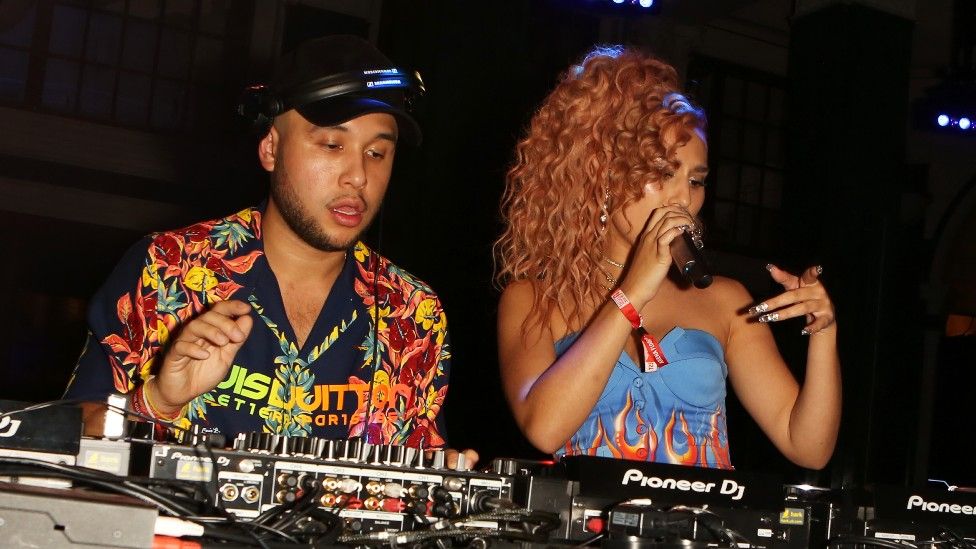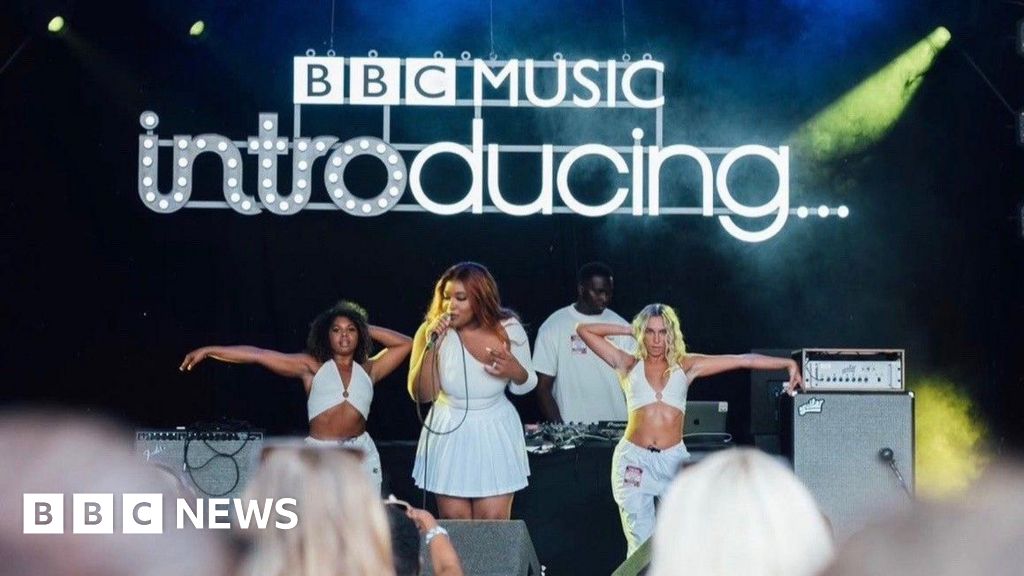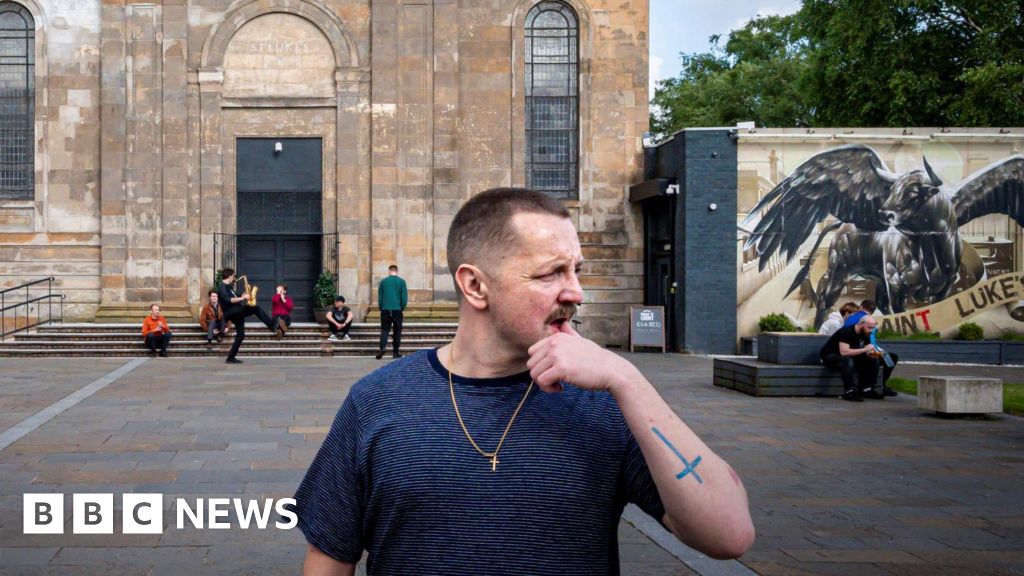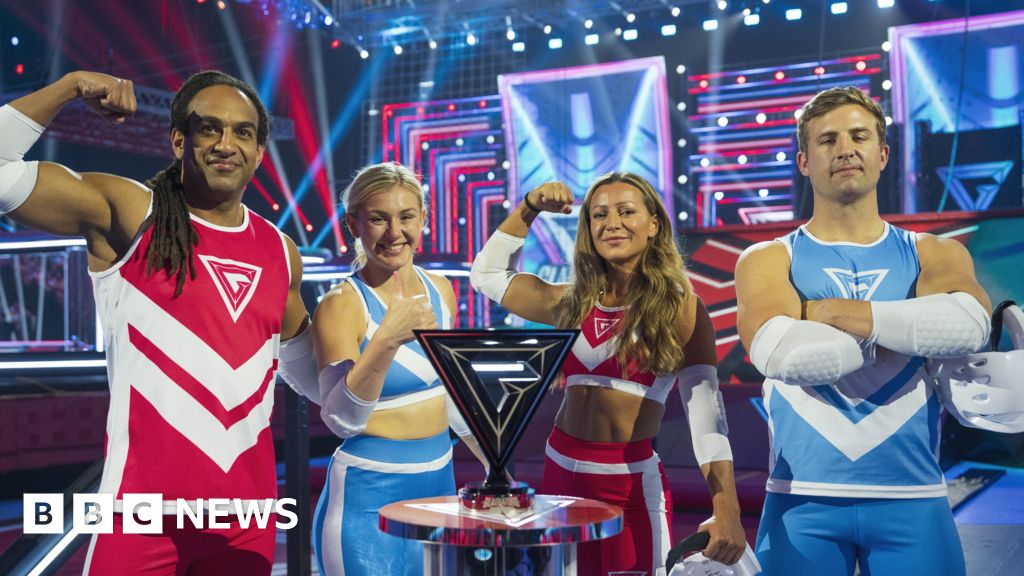ARTICLE AD BOX
By Mark Savage
BBC Music Correspondent
 Image source, Getty Images
Image source, Getty Images
Artists like Raye (right) often score their biggest hits as the featured vocalist on a song by a male producer such as Jax Jones (left)
Less than one per cent of the dance music played on UK radio is made by a female solo artist or all-female band, a new study suggests.
Women are also under-represented on the charts, accounting for just 5% of dance hits, according to the report, which examines gender imbalance in the scene.
To get heard, it says, female acts have to collaborate with male producers.
Songs with women as the "featured" vocalist make up 44% of dance music on the radio and 37% of chart hits.
The pattern can be seen in the careers of musicians like Becky Hill, Ella Henderson and Raye, whose collaborations with male producers like Jax Jones and Nathan Dawe often chart higher than their solo material.
The research, which covered the years 2020-2021, was conducted by the Jaguar Foundation - which is the brainchild of Radio 1 DJ Jaguar Bingham.
She says she was "disappointed and saddened" by the findings, which looked at female and non-binary representation across the club scene, from the board room to the charts.
Jaguar believes the lack of female dance producers is "systemic", with many women discouraged from pursuing a career in music at an early age.
"If I think about when I was at school, boys were always encouraged to do more technical things like music production," she says.
"As a result, there are more men in that field, so they managed to take over the scene and become the majority. So anyone who isn't [a man] maybe feels shunned, doesn't feel comfortable or doesn't feel welcome."
Jaguar presents the BBC Introducing show on Radio 1 Dance, championing new artists
There is some room for optimism - the report's authors say - with the report showing that the proportion of female and non-binary acts on UK festival bills has doubled since 2018, from 14% to 28%.
However, it notes that women are often relegated to warm-up slots at the bottom of the bill.
"You'll have an all-male line-up and then you'll have one woman," says DJ Nia Archives in the report. "It's ridiculous to be honest with you. But you know, it's quite a boys' club."
Her comments are borne out by the evidence. At this year's Creamfields festival, for example, Nina Kraviz is the only female headliner - from a total of 33, across the festival's 10 stages.
The result, says Jaguar, is that dance music has almost forgotten its roots in the queer and black minority spaces of 1970s Chicago, Detroit and New York.
"Now, if you look at a lot of major festival line-ups it's just a lot of guys - which isn't really representative of what it should be."
The lack of diversity is reflected in the audiences who attend these shows, the report suggests.
"If you've got an all-white male line-up, that's gonna attract a lot of white males," says rising London producer TSHA.
"A gay black man or a black woman's not going to feel like they can come to that party. They're not going to feel like that party is for them."
The report, which was backed by the Sony Music UK Social Justice Fund, also highlights the fact that many women feel unsafe in clubs.
"You can be DJ-ing and are literally having to watch your drink at the same time," DJ/producer Riva told the authors, while Yewande Adeniran said she insists on "a safety rider" after several experiences where "guys have come behind the decks" and harassed her during a set.
Jaguar says such tales are not uncommon.
"Imagine walking through the doors at work and not feeling safe - but that's exactly what happens. You come into these clubs late at night, often on your own, and there are a lot of people there who might be intoxicated.
"That's why we need to educate the clubs, the bouncers and the staff to make sure everyone feels safe on the decks, but also on the dancefloor."
To help achieve that, the report's authors have drawn up a template for an inclusivity and safety rider that artists can present to club and festival promoters.
"It says, 'I won't play on this line-up unless there's another woman, person of colour or trans and non-binary person alongside me'," explains Jaguar. "If not, it's within my rights to cancel the gig."
The broadcaster says her dream is that male headliners like David Guetta and Calvin Harris will also insist on these terms.
"If guys have these contracts too, it would really accelerate the thing that we're trying to achieve here, which is diversity," she says.
"It's a really important step that we need to take."
Follow us on Facebook, or on Twitter @BBCNewsEnts. If you have a story suggestion email entertainment.news@bbc.co.uk.

 2 years ago
30
2 years ago
30








 English (US) ·
English (US) ·